The Weight of Desolation: Alan Turing’s Journey
Experience Alan Turing’s profound struggle with despair, societal pressure, and flickering hope in this compelling narrative.
Amidst the poignant exploration of Alan Turing’s story, it’s essential to acknowledge the sensitive nature surrounding his suicide. If you find yourself in crisis, please remember that support is available. Reach out to someone who cares, as there are people ready to provide assistance and solace. - Crisis and Suicide Prevention Resources
Hiding in Sunshine: Alan Turing’s Silent Struggle
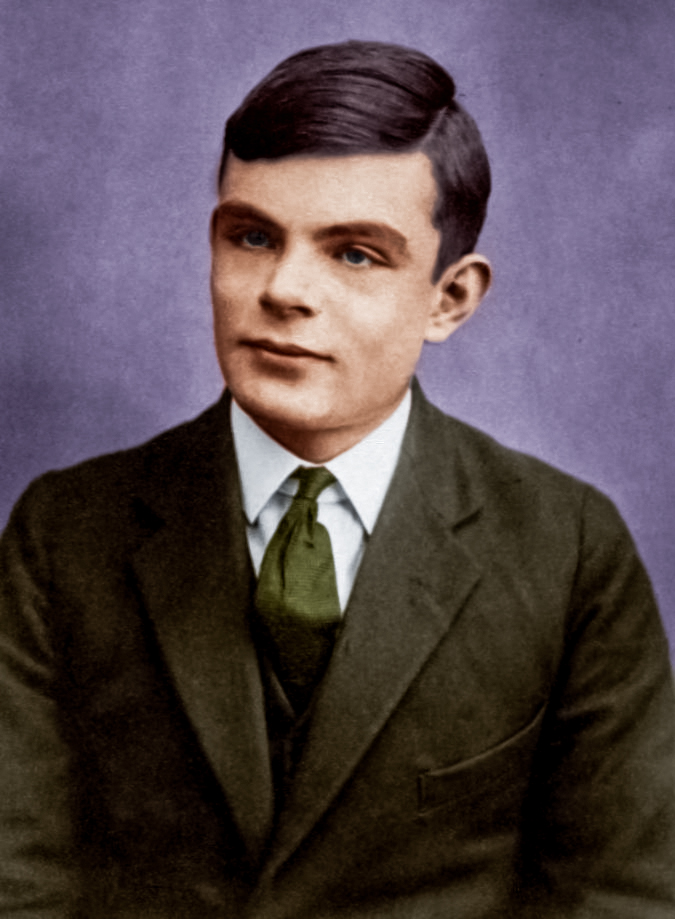
I, Alan Turing, sat at the kitchen table, sipping my tea, while Mother and Johnnie engaged in a lively conversation. The summer sun streamed through the open window, casting a warm glow in the room, and filling it with a sense of tranquillity. The birds chirped happily in the garden, blissfully unaware of the weighty discussion unfolding within the walls of my childhood home.
Sara Turing, my Mother, held the newspaper in her hands, her voice brimming with excitement. “Did you hear about all these Gross Indecency Convictions? They’ve caught another one of those deviants!”
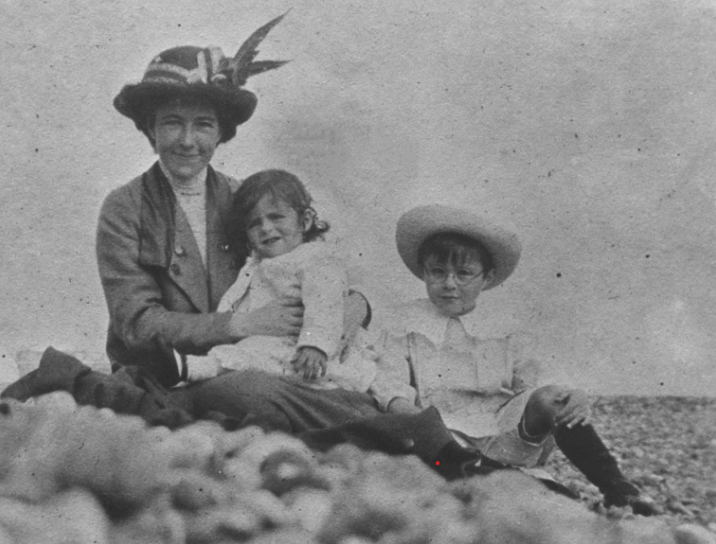
Johnnie Turing, My Brother, leaned forward; his face twisted in disgust. “Good riddance, I say! We’re better off with all those queer, pansies, and fairies off the streets of London.”
I kept my gaze fixed on the table, feigning interest in my tea. They were discussing my kind, people like me who were deemed immoral and deviant by society. I knew I had to play along, hiding my true self from my family, even if it meant nodding along with their beliefs.
Mother noticed my silence and asked, “What do you think, Alan? Have you read about these cases?”
I raised my head, offering them a tight-lipped smile. “Yes, Mother. It’s a terrible thing, what people choose to do.”
he words tasted bitter in my mouth, for I knew all too well that I hadn’t chosen this path. I hadn’t asked to be immoral or deviant, as they called it. It wasn’t a decision but an inherent part of who I am. The realization had struck me with dread at the tender age of 14, and ever since, I had lived in fear.
It was the summer of 1922, and I, a 14-year-old Alan Turing, found myself immersed in the tranquillity of the countryside, away from the bustling streets of London. It was during this idyllic vacation with my family that I crossed paths with another young man whose name, despite the vivid memories that remain etched in my mind, eludes me. From the moment our eyes met, an instant connection sparked between us, and we became fast companions, exploring the verdant landscapes and sharing laughter under the warm sun.
But as the days passed and our friendship deepened, I couldn’t ignore the undeniable truth that had taken root within my heart. Something I couldn’t explain, nor could I easily accept. Feelings had blossomed within me, feelings that defied the expected norms and confounded my young mind. I found myself irresistibly drawn to this boy, my heart racing in his presence, my thoughts consumed by his smile.
Inwardly, I battled with these unfamiliar emotions, attempting to suppress them and dismiss them as mere confusion. Fear gripped me, for deep down, I knew the implications of what I was experiencing. The realization loomed over me like a spectre: I feared that I might be a homosexual. In a world where such desires were deemed unacceptable, the weight of that possibility pressed heavily upon me.
Despite my internal struggle, I couldn’t resist stealing glimpses of him whenever I could, caught between the yearning to be near him and the desperate need to protect myself. It was during those stolen moments that the truth became undeniable, unshakeable. What I felt was real, and it couldn’t be silenced or denied any longer.
And so, as our time in the countryside drew to a close, I made a decision that would forever alter the course of my life. To shield myself from the perceived dangers that lay ahead, I chose to avoid any further encounters with my first crush. In doing so, I unwittingly closed a chapter of my life, a chapter that would remain eternally unfinished.
I never saw him again. His name, lost to the passage of time, but his impact on my life forever imprinted upon my soul. The memory of that summer, the awakening of my true self, would linger as a bittersweet reminder of a love unexplored, a love that I had to conceal, and the journey that awaited me as I navigated a world that would challenge and test my very essence.
As Mother and Johnnie continued to discuss the newspaper articles, I couldn’t help but retreat into my own thoughts. Being homosexual in such a hostile environment was a constant battle. Every day, I wore a mask, pretending to be someone I wasn’t, hiding my desires and attractions from the world.
I glanced at the headlines in the newspaper, filled with sensational stories of arrests and prosecutions. The thought of being caught sent shivers down my spine. I knew all too well the consequences of my true self being revealed—the humiliation, the judgment, and the potential ruin of my life. It often felt as though I would be better off dead than facing such a fate.
So, I sat there, surrounded by the sunshine, the laughter, and the tea, desperately concealing my true nature. The weight of secrecy pressed heavily upon me, but I knew I had to endure it for as long as I could. My thoughts were my sanctuary, my only refuge in a world that denied my existence.
As the conversation carried on, I wondered how long I could keep up the facade. How long could I continue to agree vaguely and wear a fake smile? Only time would tell. For now, I remained silent, lost in the recesses of my mind, longing for a future where I could be free to be myself without fear of condemnation.
The Rain-soaked Trial: Alan Turing’s Burden of Condemnation
The rain pounded relentlessly against the courthouse windows, mirroring the bitterness that enveloped me on this fateful day—March 31, 1952. It was a day that would forever be etched in my memory, a day when the world turned against me and my true self.
I faced a cruel choice, a choice that no one should ever have to make. Life in prison or chemical castration—the options laid bare before me, both equally devastating. And in the face of such torment, I made the unthinkable decision to undergo chemical castration, surrendering not only my physical well-being but also my dignity and autonomy. The judgment of society had sentenced me to a life of anguish, stripping away my very essence, leaving behind a broken man weighed down by the heavy chains of prejudice.
As I stood there in the aftermath of the trial, surrounded by the cold, unforgiving walls of the courtroom, I couldn’t escape the sight of my mother and brother. Their faces bore an expression I could never have fathomed—betrayal. Their once proud and loving gaze was now replaced with disappointment and disgust.
The accusing looks from those around me cut through my soul like a knife. Their eyes, filled with judgment and contempt, reinforced the weight of society’s condemnation upon my shoulders. I had been found guilty of Gross Indecency, a crime simply for being whom I was, for loving who I loved.
Amidst the sea of disdain, a small ray of light shone through. Joan Clarke, my dear friend and confidante, locked eyes with me, her gaze filled with empathy and reassurance. In that moment, her presence provided solace, a reminder that there were still those who understood, and who saw beyond society’s prejudice.
Yet, as I stood there, absorbing the magnitude of my conviction, a question echoed relentlessly in my mind— would anyone willingly choose to be homosexual? To bear the weight of this stigma, to face the scorn and rejection from society? No, it wasn’t a choice. It was an innate aspect of my being, as natural as the air I breathed.
A profound sadness washed over me, a deep longing for acceptance and understanding. The thought of living the rest of my days branded as a criminal, as an outcast, seemed unbearable. In the depths of my despair, I couldn’t help but contemplate if it would be easier to embrace death than to face a world that denied my existence.
The rain continued to pour outside as if nature itself wept for the injustice that had befallen me. I stood there, a broken man, carrying the weight of society’s condemnation upon my shoulders. But within the depths of my being, all I felt was a dim flicker of hope, struggling to stay alive amidst the overwhelming darkness. It was not a flame of resilience, but rather a desperate plea for understanding, for acceptance.
In that moment, I couldn’t fathom how to rise above the suffocating weight of stigma. The unjust laws had crushed my spirit, leaving me broken and defeated. The fight for acceptance, for equality, seemed like an impossible dream, a distant mirage that taunted me with its elusive promise.
As I took one last painful glance at the accusing faces and felt the crushing weight of betrayal from my family, I found no strength within me to march forward. The path ahead appeared treacherous, lined with despair and loneliness. It felt as if I had already been sentenced to a lifetime of suffering.
The world seemed determined to cast me aside, to erase my existence, leaving me with nothing but the lingering echoes of their disdain. In the face of such hostility, I was silenced, my voice drowned out by the overwhelming tide of prejudice.
The concept of being Alan Turing, unyielding and resolute, felt like a distant memory. The hope for a brighter future seemed unattainable as if I were already condemned to a life devoid of joy and acceptance.
I longed for a world that would see me as I truly was, a world that would recognize my contributions beyond the confines of my sexuality. But in that moment, all I could feel was the heavy weight of a society that deemed me unworthy, a burden too heavy to bear.
Bearing the Burden: Alan’s Secret Strain and Johnnie’s Hurt
As I sat in my living room, the weight of the world pressed heavily upon my shoulders. The end of May 1954 approached rapidly, casting a shadow of despair upon my heart. The conversations that ensued within the walls of my home would become the final threads connecting me to the people I held dear. Each interaction became a testament to the pain I carried and the choices I had made.
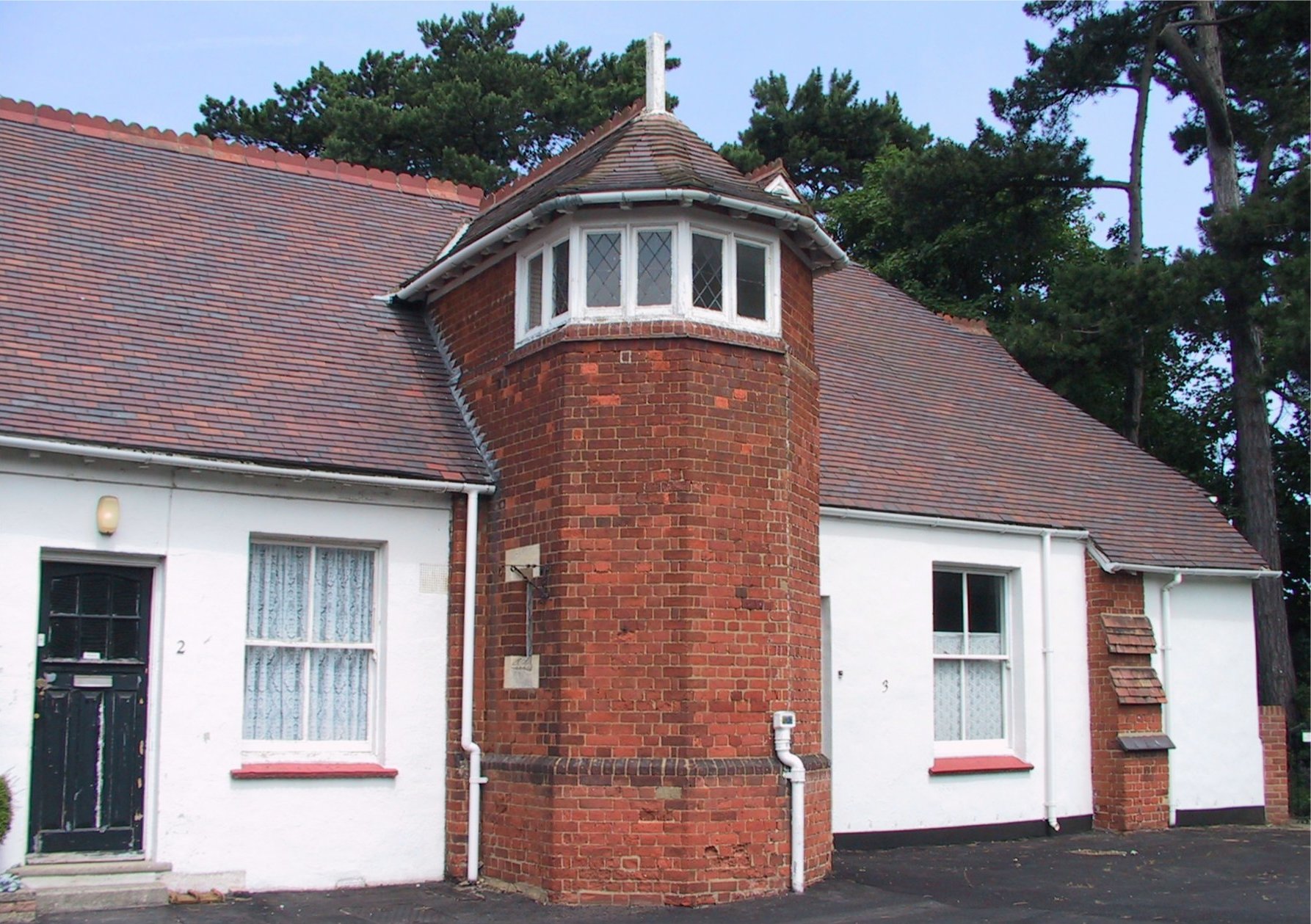
The room was filled with palpable tension as Johnnie Sat on the sofa across from me, his brows furrowed with confusion and hurt. His questions hung in the air, each one a sharp arrow piercing my already wounded heart.
“How did this happen, Alan? How did you become this way?” he asked, his voice a mixture of frustration and anguish mixed with a tinge of disgust.
My gaze shifted downward, my mind racing with a flood of thoughts. Would anyone choose this? Could they understand? I mustered the strength to reply, “I don’t know, Johnnie,” I murmured softly. “This is the way I have always been. Homosexuality is a fundamental aspect of who I am, just as being heterosexual is for others.”
His eyes searched mine; his worry etched deeply into his features. “Did we fail you in some way?” he asked, his voice filled with a mixture of guilt and longing for understanding. It’s hard on me too, I thought silently, my heart heavy with the weight of my secret.
“No, Johnnie,” I replied, my voice tinged with sadness. “You and Mother did not fail me. It is not your fault. It is simply my truth.”
His frustration lingered, his worry etched deeply into his features. “Do you know how this has affected Mother? To this day, she continues to cry herself to sleep over you.”
I couldn’t bring myself to respond. The pain of knowing the anguish I had caused my mother was a burden I carried heavily upon my heart. I had shut myself away in this house, away from prying eyes and judgments, but I couldn’t shed my family nor shield them from the bearing of my truth.
Why did you keep such an important part of yourself hidden from your family?” Johnnie pressed, his voice filled with a mix of hurt and anger. I didn’t feel safe, I contemplated, my thoughts a silent plea for understanding.
I hesitated, the weight of my answer heavy upon me. “I didn’t feel safe, Johnnie,” I finally whispered, my voice barely audible. “And my career… I couldn’t risk it. It’s a difficult secret to bear, one that I thought would protect us all.” The weight of my truth settled heavily upon me, as did the knowledge that I couldn’t shield my family from the repercussions of my hidden self.
His face contorted with a mix of emotions, a flash of jealousy crossing his eyes. “You trusted Joan with this,” he stated, his tone tinged with anger.
As his frustration intensified, Johnnie’s words cut deep, and I felt a pang of regret. I’m sorry, Johnnie, I wanted to say aloud, my voice catching in my throat. The silence stretched between us, a chasm filled with unspoken emotions.
I looked at him, the pain of his words seeping into my soul. “Joan is a dear friend, Johnnie,” I replied softly. “A remarkable person who showed me understanding and compassion. It was a difficult burden to carry, and I trusted her deeply.”
His anger intensified, disappointment etched upon his features. “And yet, you didn’t feel that you could trust me, your own brother,” he uttered, his voice laced with bitterness.
I bowed my head, feeling the weight of his words crash upon me like a tidal wave. “I’m sorry, Johnnie,” I murmured, my voice filled with remorse.
Amidst our conversation, my inner turmoil raged on. Would anyone choose this? How could they understand the torment I’ve faced? These questions echoed incessantly within me, drowning out the words I couldn’t bring myself to speak.
The room became suffocating, the walls closing in on me as I yearned for an escape. The weight of my existence felt unbearable, and the thought of suicide tiptoed closer, a tempting yet terrifying prospect. Is there no way out?
As Johnnie’s presence faded from the room, the suffocating weight of my existence engulfed me. Thoughts of suicide began to take hold, a desperate yearning to escape the torment that had plagued me for so long. It felt as though there was no way out, no glimmer of hope left to grasp.
Alan’s Burden: Arnold’s Remorse and the Weight of Despair
The heaviness of my thoughts clung to me like a suffocating shroud as I lay in my bedroom, seeking solace in the sanctuary of sleep. The weight of my own suffering, brought on by the trials of my homosexuality and the cruel consequences of chemical castration, bore down upon me relentlessly. Little did I know that my inner turmoil was about to be further exacerbated by an unexpected visitor.
A gentle knock on the bedroom door disturbed the fragile silence, and Arnold Murray’s voice seeped through the door, “Can we talk?” Wearily, I dragged myself from the embrace of my sheets, my wearied soul longing for respite. I opened the door, allowing him entry, though my heart was too heavy to fully embrace the conversation.
Arnold’s words spilled forth, laden with guilt, but it was clear that his concern was more focused on his own feelings than the impact of his words on my fragile state. “I can’t help but feel this overwhelming guilt for what happened to you,” he began, his voice tinged with remorse. “I knew we were taking risks with our relationship, and I can’t shake the feeling that I played a part in your conviction. I should have done more to keep our secret hidden. I feel like I let you down.”
Struggling to muster empathy, I responded with a wearied voice, “ I appreciate your remorse, Arnold, but now is not the time.” I attempted to be sensitive to his feelings, for I knew guilt weighed heavily on him, but my own suffering consumed my every thought. I silently yearned for him to see the depths of my pain, to understand the turmoil that gnawed at my soul.
Yet, Arnold persisted, his words reflecting his own regret and the desire to rewrite the past. “ Seeing the impact on your life, it’s difficult for me to bear. I should have been more careful, more discreet,” he lamented, his voice tinged with a sense of helplessness.
“I’m sorry this has been difficult for you,” I murmured, my voice softening. But beneath the surface, a swell of frustration stirred within me. This conversation should not revolve around his burden, his guilt. This was my suffering to bear, my burden to carry. Yet, I still tried to temper my words, my empathy overriding my own need for solace.
Arnold’s remorse continued to pour forth, a torrent of “what-ifs” and regrets. His words clawed at my already fragile state, and I felt the dam of my emotions crumbling. “ But this isn’t about you!” I burst out, my voice laden with pain and frustration. In that moment, I could no longer mask the depths of my own suffering. The weight of the world had settled upon me, and I had reached my breaking point.
Amidst the conversation, my inner turmoil raged on, a tempest of emotions threatening to consume me. The agony of my homosexuality and the unseen torment of my chemical castration mingled within my soul. Each word from Arnold’s lips chipped away at my fragile resolve, intensifying the storm that raged within me.
As the conversation reached its crescendo, I could no longer contain my own pain, my own anguish. My inner turmoil spilled over, no longer concealed behind a veil of false strength. The shadows of remorse cast upon me served only to deepen the abyss of suffering that already enveloped my being.
And so, in the aftermath of our conversation, as Arnold departed with a mix of guilt and confusion etched upon his face, I retreated once again into the cocoon of my bedroom. The weight of the world pressed upon my chest, suffocating me with its relentless grip. Each breath I took was strained as if the air itself had turned against me. The walls that surrounded me felt like a prison, trapping me in a never-ending cycle of pain and despair.
In the solitude of my room, I found myself lost in a swirling vortex of thoughts and emotions. The words spoken by Arnold echoed in my mind, their impact reverberating through the depths of my soul. But amidst the cacophony of self-doubt and anguish, one question pierced through the haze: “Would you choose?”
Would you choose a life of torment, this constant battle between who I am and who the world wants me to be? The weight of society’s condemnation and the relentless persecution for something I did not choose pressed upon me like an iron anchor, dragging me deeper into the abyss of despair.
I searched for answers within myself, desperately seeking solace in the recesses of my tormented psyche. But the truth eluded me, slipping through my fingers like grains of sand. I had become a stranger to myself, trapped within a body and a society that rejected my very existence.
The notion of suicide whispered its seductive promises, offering an escape from the pain that engulfed me. It beckoned to me like a siren’s song, a promising respite from a world that seemed determined to crush my spirit. The darkness within me grew, as the idea of ending my own life felt like the only way to find release from the chains that bound me.
Fractured Bonds: Alan Turing’s Turmoil with Max Newman
The room was enveloped in a gray melancholy, mirroring the somberness that had settled within my heart. Raindrops tapped against the windowpane, a rhythmic reminder of the world outside. In my kitchen, the space where warmth and comfort were once found, I stood preparing tea for my mentor, Max Newman. Bitterness and resentment lingered in the air, threatening to shatter the fragile peace that remained.
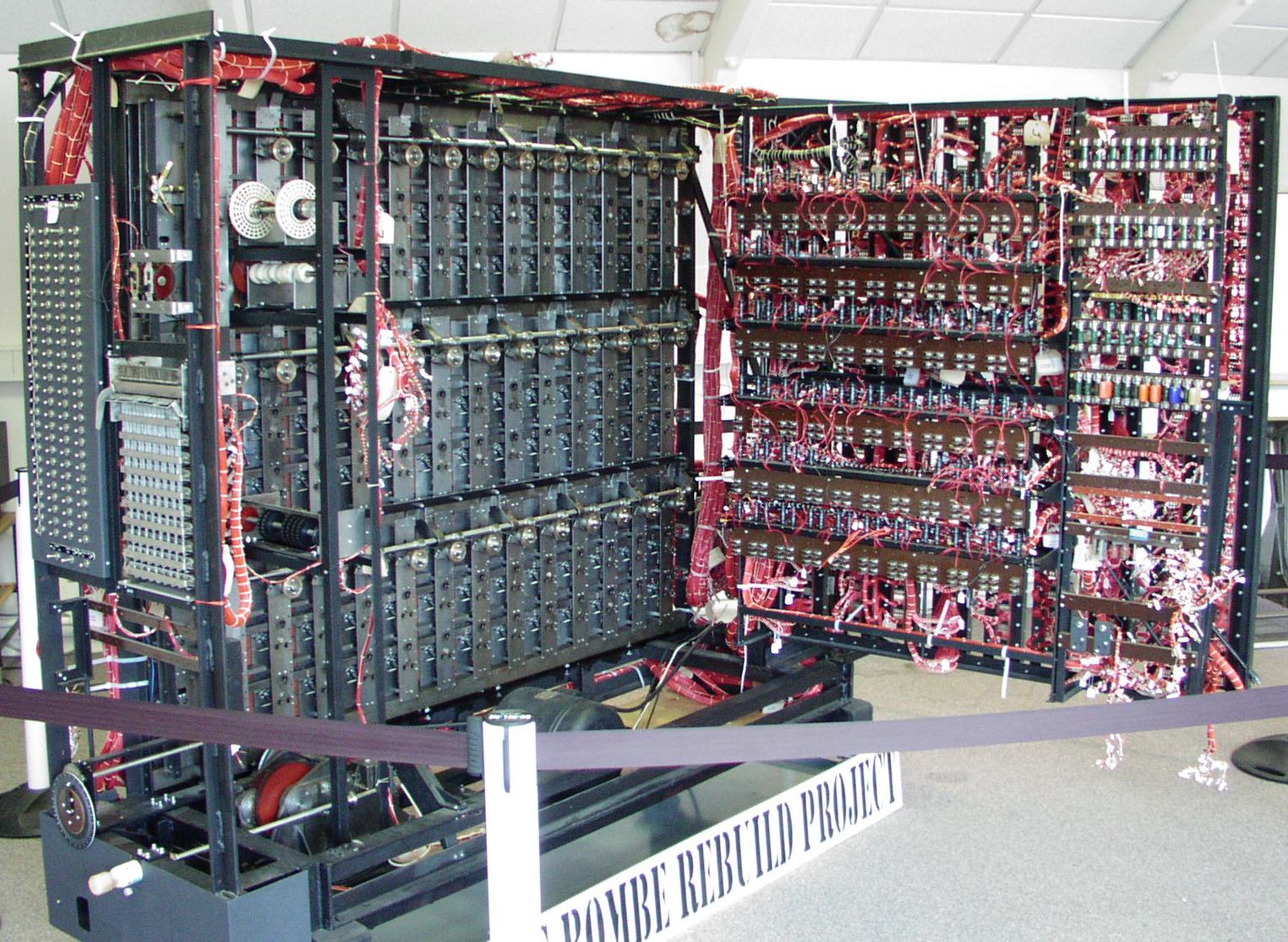
Max and I had shared a bond forged through the crucible of Bletchley Park, where we toiled tirelessly to break the enigma of the Nazi codes. But now, the weight of my homosexuality, exposed mercilessly by the unforgiving gaze of public scrutiny, cast a sombre veil over our connection.
As I set the table with trembling hands, Max attempted to bridge the divide with casual banter, reminiscing about our clandestine endeavours during the war. I offered a forced smile, nodding along to his veiled allusions, careful not to reveal too much of the truth. The classified nature of our work still bound my lips, shielding the depths of my contribution from others’ understanding.
The silence that followed was suffocating, punctuated only by the boiling kettle and the swirling steam that danced above it. I could sense Max’s disappointment and anguish, his heavy sigh permeating the room. The weight of unspoken words hung in the air, and I knew the burden of unfulfilled potential rested upon my shoulders.
“Sorry,” I murmured, breaking the tense stillness, and busied myself with preparing tea. The clinking of porcelain and the gentle sound of liquid pouring offered a semblance of normalcy amidst the turmoil that consumed us.
As the tea steeped, Max’s frustration became palpable. His voice trembled with emotion as he spoke, “You had such potential and the brilliance I once saw in you. You had boundless possibilities; what happened?” It was a painful reminder of what could have been, a stark contrast to the reality that now unfolded.
I had no response, instead poured the fragrant tea into delicate cups. The rich aroma wafted through the air, offering a momentary respite from the weight of our conversation. The gentle clinking of porcelain and the rhythmic pour of the tea brought a semblance of normalcy to the room, a simple act of hospitality amidst the complex emotions that engulfed us. As I handed Max a cup, our fingers briefly brushed a subtle connection that spoke of shared history and unspoken understanding. The warmth of the teacup seeped into my hands, offering a fleeting sense of comfort amidst the tumultuous sea of emotions.
Avoiding his gaze, I sought solace in the teacup before me. Its warm contents mirrored the troubled depths of my own soul. Each sip carried with it a bittersweet reminder of the choices I had made, the paths I had walked, and the consequences that ensued.
“Say something, you Fa…” The room trembled with the force of his anger; my soul recoiled, withdrawing further into the recesses of my being. I froze, my body stiffening, his words pressing upon me like a suffocating embrace. The cruelty of society’s judgment, compounded by the disappointment of someone I held dear, threatened to consume me entirely.
As Max’s anger flared, his fists clenching in frustration. The room seemed to constrict around me, closing in with an oppressive force. His accusations hung in the air, demanding answers I struggled to provide. The weight of disappointment and unmet expectations pressed upon me, further entangling me in a web of self-doubt and remorse.
In that moment, as I sipped the tea with a heavy heart, I couldn’t help but wonder how different things might have been. The taste of regret mingled with the bitter warmth of the brew, a bitter reminder of the choices and sacrifices that had brought me to this point.
I longed for the strength to confront Max’s disappointment, to bridge the gap between the person I was and the person he had believed me to be. But as the silence enveloped us once more, the answers eluded me, lost in the depths of my own uncertainty and the burden of the life I had chosen.
“I trusted you,” he seethed, his voice laced with a sense of betrayal. “How could you hide this from me? Were there signs I should have seen?” His words echoed through the space, reverberating within the depths of my wounded heart.
” I cannot control how I feel,” I murmured softly, my voice barely a whisper. The weight of Max’s disappointment pushed me further into the shadows, his proximity a stark reminder of the chasm that had formed between us.
With an air of indignation, Max condemned my existence, declaring my truth to be immoral. I mustered the courage to defend myself, to explain that this was not a choice, but an integral part of my being. But his belief in his own righteousness stood unyielding, dismissing my words as mere excuses.
Thirty years of grappling with my identity, and navigating a world that labelled me deviant and unnatural, all laid bare in that moment. I yearned for Max to understand, to see beyond the surface and recognize the pain that dwelled within me. But his rigid stance and unwavering condemnation shattered any hope I held.
In the depths of that kitchen, I questioned my worth, my place in a world that rejected my truth. Max’s unwavering conviction that I could change, that I could mould myself into something more acceptable, only served to deepen my despair. I had tried for decades, fought an internal battle that left scars no one could see. Yet, I had not found a path to liberation from the torment that haunted my soul.
As the echoes of Max’s anger lingered in the room, I retreated further into my own thoughts. The turmoil within me intensified, the weight of societal rejection and the agony of unfulfilled desires converging into a relentless storm. The notion of escape, of finding respite from this unyielding pain, began to take hold.
With each passing moment, the idea of ending my own suffering gained strength, whispering its seductive promise of release. The kitchen, once a sanctuary, transformed into a battleground where hope and despair waged a fierce internal struggle. The teacup, now forgotten, held no solace as my mind wandered to darker territories.
In the depths of that bleak spring day, I questioned the purpose of my existence. Would the world be better off without the burden of my presence? Could I find peace in the eternal quietude that awaited beyond the veil of life?
Whispers of Betrayal: A Fractured Bond with Alan Turing’s Mother
The room was shrouded in an air of tension as my mother and I sat face to face in the dimly lit parlour. Her disappointment and hurt permeated the air, casting a sombre shadow over our once-vibrant relationship. I watched her, the woman who had nurtured and loved me throughout my life, her features etched with a mix of anguish and betrayal.
Sara Turing, my mother, had always been a pillar of strength and affection, but now her heart was torn between her love for me and the shame she felt engulfing our family. Her words pierced through the heavy silence, each one leaving a mark on my already fragile soul. “You have brought such shame on our family. How could you let yourself be involved in such disgusting acts? I can’t even go out into public anymore; the shame is so great.”
Guilt washed over me like a suffocating wave, but even in that moment, I knew I couldn’t apologize for my true self. I couldn’t deny the essence of who I was to appease societal expectations. With a mixture of regret and determination, I offered my apology, not for my homosexuality, but for the pain, she felt so deeply.
“Don’t apologize to me,” she replied, her voice filled with a complex mix of anger and sorrow. “You need to apologize to the court, deny your homosexuality and make it clear that it was all a big mistake.”
The words hung in the air, a heavy burden on my shoulders. How could I betray myself in such a way? How could I deny the core of my being and pretend that it was all a mere error? I couldn’t bear the thought of erasing my truth to conform to a society that condemned and rejected me.
Tears welled up in my mother’s eyes, her voice trembling with emotion. “This is immoral and sinful. It’s bringing disgrace upon us. I thought you knew better than to engage in such behaviour.”
Every fibre of my being ached to make her understand, to see beyond the surface and delve into the depths of my struggle. “But Mother, please try to understand that my sexual orientation is not a choice or something I can simply apologize for. It’s an integral part of who I am. I never intended to bring disgrace upon our family, but the circumstances and societal attitudes have forced me into secrecy and suffering.”
A heavy silence settled in the room, broken only by the faint flickering of the table lamp. I watched my mother, her face a canvas of conflicting emotions, torn between her love for me and the fear of societal judgment. It was a battle that neither of us could easily win.
“I can’t bear the thought of what others will say about us,” she finally murmured, her voice filled with a mixture of resignation and despair. “It’s humiliating. Can’t you see how this is affecting our reputation?”
Her pain, interwoven with my own, became an unspoken plea for understanding and acceptance. In that moment, as the weight of societal expectations threatened to suffocate us, I couldn’t help but silently ask, Would you choose to see beyond the judgment and embrace your son with love? Would you choose to defy the suffocating grip of reputation?
The conversation had left its mark, etching deeper scars upon my already wounded soul. And as the thoughts of suicide lingered at the edges of my consciousness, I clung desperately to the flicker of resilience that remained within me.
Joan’s Fading Light: Alan Turing’s Descent into Despair
The sun cast its warm rays upon my back garden, but its cheerful glow felt distant and foreign. Joan Clarke, my dearest friend, sat beside me, her words of support attempting to breach the walls of my despair. I mustered a feeble smile, a mask to conceal the depths of my anguish, as she tried to infuse hope into my desolate world.
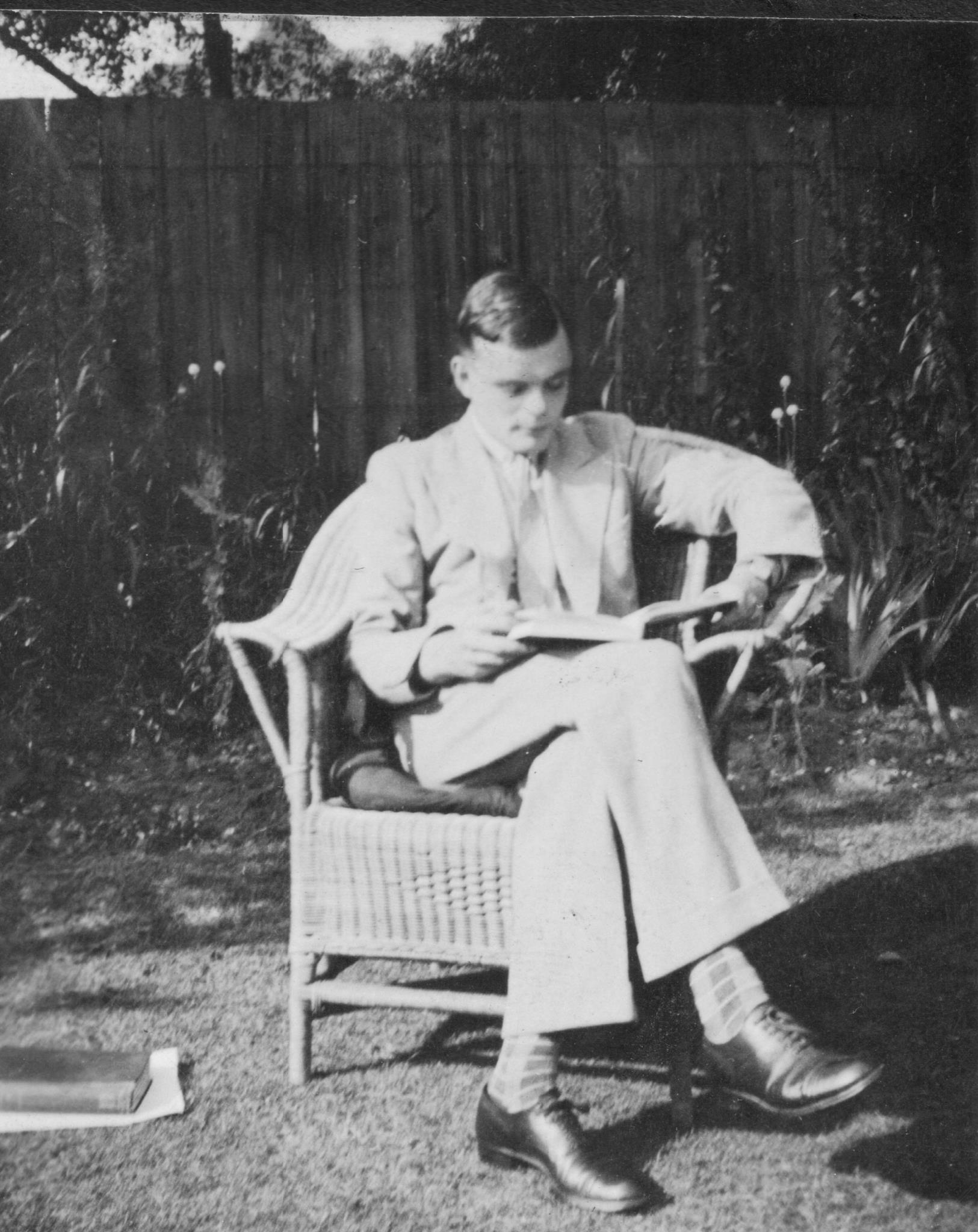
“Alan, I know things have been tough lately, but I believe in you,” Joan said, her voice filled with a mixture of concern and determination. “You’re an incredibly brilliant and resilient person, and this setback doesn’t define who you are. We’ll get through this together.”
Her words, once a beacon of solace, now felt like distant echoes in the caverns of my shattered spirit. How could she still believe in me when all hope had drained from my being? Yet, I appreciated her unwavering support, even if it felt like a distant memory.
“I appreciate your support and encouragement,” I responded, my voice betraying the weariness within me. “I’m trying my best to stay strong, but the weight of it all…” My words trailed off, swallowed by the suffocating darkness that engulfed me.
Joan’s gaze conveyed both sympathy and determination. She believed in the resilience I once possessed, but little did she know that it had withered away, consumed by the relentless storm within my soul. The well of hope had run dry, and all that remained was the hollow echo of my existence.
“I want you to remember that you’ve accomplished remarkable things, Alan,” Joan pressed on, her voice tinged with a desperate attempt to revive my fading spirit. “Your intellect and contributions to the world are unparalleled. Don’t let this situation overshadow how amazing you are.”
Her words, though spoken with genuine admiration, fell upon deaf ears. The accolades and achievements that once held meaning now seemed like distant fragments of a past life. How could they shine in the face of this relentless darkness that gnawed at my very core?
“It’s hard, Joan,” I confessed, my voice barely a whisper. “The weight of it all… the conviction, the consequences… they’ve eroded my spirit. I can’t see beyond this endless abyss of despair.”
Joan reached out, her hand lingering in the space between us, as if trying to bridge the widening chasm of my desolation. “You’re more than this conviction, Alan,” she murmured, her voice filled with the echoes of fading hope. “Your brilliance, your resilience… they define you. There’s still a future, a chance to reclaim what has been taken from you.”
But her words, like fragile strands of light, failed to break through the impenetrable darkness. The flames of resilience and potential had flickered and died, leaving only the cold remnants of a shattered soul. Redemption seemed beyond reach, and the weight of despair threatened to extinguish what little remained.
“I appreciate what you are trying to do for me, Joan, and I wish I could believe that,” I whispered, my voice heavy with defeat, “But all hope… it’s gone. There’s nothing left for me.” As the words hung in the air, I felt the weight of my desolation settles upon me like an impenetrable shroud. In the depths of my despair, I had convinced myself that I was beyond help and that no amount of support or encouragement could mend the shattered fragments of my being. The notion of a brighter future seemed distant and unattainable, lost in the shadows of my anguish. At that moment, I harboured no desire for rescue, for I believed that I had already been consumed by the relentless darkness that had engulfed my being.
As I gazed into the depths of my own torment, Joan’s presence became a distant shadow, a faded memory of what once was. The echoes of her well-intentioned words mingled with the desolate silence that enveloped my existence. In that moment, I was left to confront the unbearable truth—I had lost all hope, and my spirit had become a casualty of the unrelenting forces that sought to extinguish it.
Alan Turing’s Last Night: The Red Apple’s Surrender
June 7, 1954—Within the confines of my dimly lit bedroom, despair weighed heavily upon me, suffocating any flickering remnants of hope. Would solace ever grace my tormented soul? Unanswered questions swirled within my troubled mind, each one a shard of shattered dreams. Could you choose? The words echoed relentlessly, taunting me with their unanswered plea.
Restless, I paced the room, my steps tracing an aimless path of anguish. Echoes of past conversations resurfaced, intertwining with my torment. My mother’s voice, laden with disappointment and shame, pierced through the silence. “You have brought such shame upon our family,” she had said. The weight of her words crushed me, a reminder of the fractured bonds that once held us together.
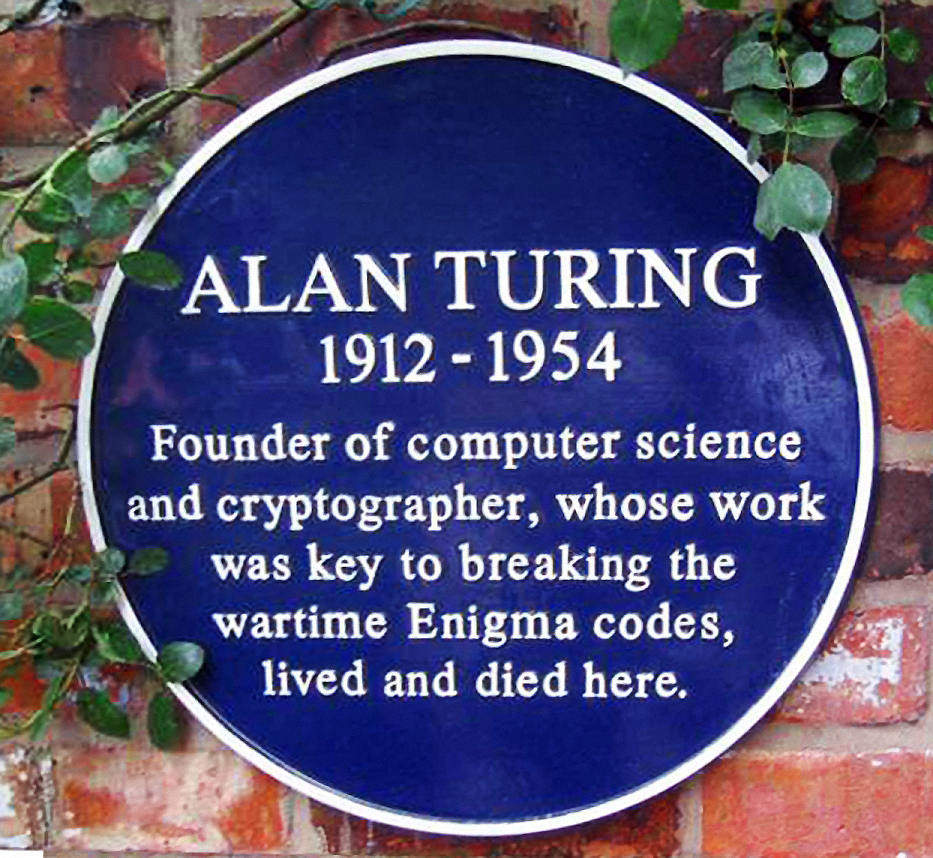
Each syllable reverberated within the chambers of my troubled mind, echoing like a relentless cadence that matched the rhythm of my footsteps. Like relentless drums, they intensified my torment, driving me deeper into the depths of despair. I halted by the edge of my bed, fixated upon the dismal shadows cast upon the walls, their mocking dance mirroring the anguish of my tortured soul.
The unyielding question resounded through the recesses of my being, its words deafening in their relentless pursuit: Could you choose? Its weight bore down upon me as if the very fabric of my existence trembled under its scrutiny. Could you choose to be homosexual? The query echoed, an agonizing reminder of my struggle against societal expectations.
But hope, like fragile petals, withered beneath the weight of despair. The room, shrouded in shadows, offered no solace. A single apple, its vivid redness mirroring the tumultuous emotions within, remained untouched upon the bedside table, illuminated by the feeble glow of my lamp. “Just eat the apple,” I whispered to myself, my voice trembling with desperation. Yet fear, a relentless companion, held me captive in its icy grip, rendering me incapable of decisive action.
Restless, I ran my fingers through my dishevelled hair, gripping its strands tightly in my fists, as if attempting to wrestle free from the grip of my grief-stricken thoughts. Desperate to escape the relentless onslaught of memories, I retraced the steps I had taken mere moments ago. The room, once familiar, now felt foreign and oppressive, as new recollections flooded my consciousness, intertwining with the turmoil that had already claimed my soul.
The riotous feelings within me refused to subside, their grip tightening with each passing moment as if conspiring to drown me in an ocean of sorrow. In the garden, where sunlight had once danced upon my weary face, Joan’s unwavering support offered a fleeting respite. Her encouraging words echoed through the corridors of my mind, like a gentle breeze amidst the storm. “You are more than this conviction, Alan,” she had said. Her belief in my brilliance and resilience offered a glimmer of hope in the darkest of times.
I circled the room, trapped within the confines of my own tortured thoughts. The lamp’s feeble glow cast elongated shadows upon the walls, mirroring the twisted paths of my mind. Weariness washed over me, both physical and emotional, as I succumbed to the depths of my desolation. Every circuit around the room echoed my inner turmoil, each step carrying the weight of a thousand regrets.
The apple, vibrant in its crimson hue, sat upon my bedside table, its presence a stark reminder of the choice that lay before me. In my moments of desperation, I told myself, “Just do it; eat the apple.” But fear, an unyielding spectre, gripped me in its icy embrace, sending me into restless pacing, my steps tracing an endless path of anguish.
The room, cloaked in darkness, offered no solace. With each circuit around the room, I fought a silent battle against the demons that ravaged my mind and soul. The apple, its radiant allure tempting yet ominous, bore witness to my relentless struggle.
Hours stretched into an eternity as I traversed the confines of my despair. Exhaustion, both physical and emotional, weighed upon my weary frame. Rock bottom, the nadir of my being, seemed an abyss from which I could never emerge. In the face of such profound hopelessness, a sliver of resolve emerged—a final act of surrender to the ceaseless turmoil within.
With trembling hands, I reached for the apple, its crisp skin yielding beneath my touch. A single bite, a surrender to the finality that awaited. In that moment, as the taste of bitterness mingled with my fleeting breath, a calmness washed over me. I laid myself upon the bed, surrendering to the embrace of sleep, knowing that it might offer respite, however brief.
In the darkness of that fateful night, my soul became entwined with the echoes of a world that could never comprehend the depths of my anguish. As the remnants of hope dissipated, I surrendered to the silence, drifting into an eternal slumber, seeking solace in the realm beyond the suffocating confines of my existence.
The End.
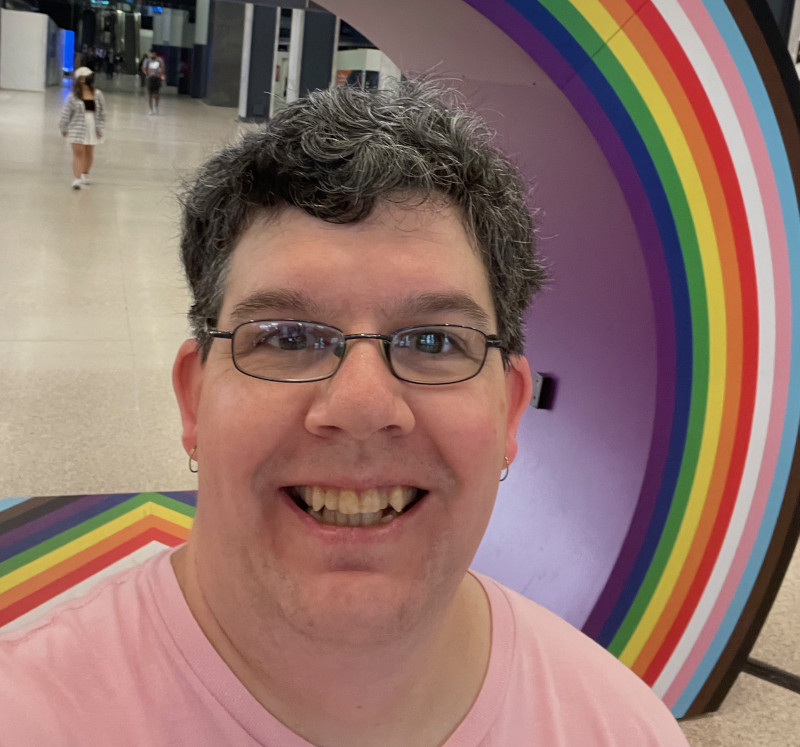
Leave a comment